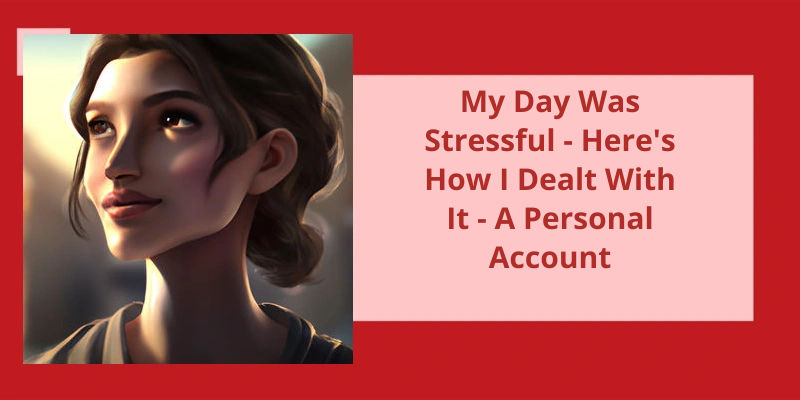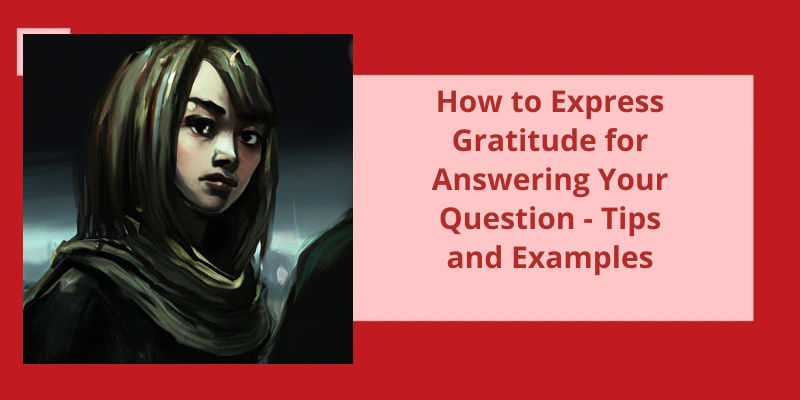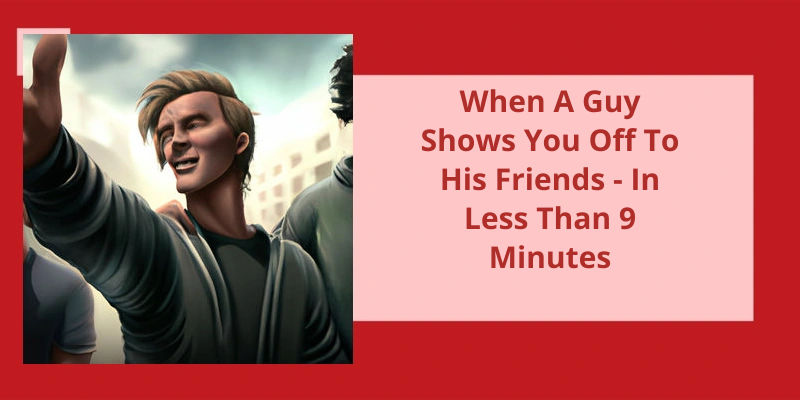It’s undoubtedly bewildering and unsettling when we find ourselves feeling sympathetic towards someone who’s caused us pain or hurt. It seems counterintuitive to extend empathy and compassion towards the very person who’s inflicted wounds upon us. Yet, this perplexing phenomenon isn’t as uncommon or illogical as it may seem. The complexities of human emotions and the intricacies of interpersonal relationships can often lead us down a path of introspection and confusion. In an attempt to unravel the enigma, we uncover secrets that nobody may have told us about why we feel bad for someone who’s hurt us. These hidden truths shed light on the depths of our own humanity, the power dynamics within relationships, and the potential for growth and healing even in the face of adversity. Delve into the depths of your emotions as we embark on a journey to understand the inherent contradictions of empathy towards those who’ve caused us harm.
Why Do I Feel Pity for Someone Who Hurt Me?
One possible reason why an empathic person may feel pity for someone who’s hurt them is that they’ve a deep understanding of human emotions and the interconnectedness of suffering. They recognize that those who cause harm to others are often carrying their own wounds and unresolved pain. In a sense, they see the hurtful actions as a manifestation of that persons internal struggles. This understanding can evoke empathy and compassion, leading them to feel sorry for their aggressor.
They recognize that happy, fulfilled individuals are less likely to inflict pain upon others, as they’ve no need to project their own suffering onto others. This perspective allows them to separate their own pain from the actions of their aggressor, leading to the genuine feeling of pity.
Feeling sorry for someone who’s hurt them emotionally isn’t a sign of weakness but rather an indication of spiritual maturity and a deep understanding of human suffering. They separate their own suffering from the actions of their aggressor, showing compassion and empathy. This viewpoint allows them to see beyond the surface behavior and understand the underlying complexities of the human condition. Moreover, by feeling sorry for their aggressor, they may hope for a healing and growth process for both parties involved.
The Concept of Forgiveness and It’s Role in Healing After Being Hurt by Someone
- The definition and significance of forgiveness
- Understanding the impact of being hurt by someone
- The healing power of forgiveness
- How forgiveness promotes emotional well-being
- The process of forgiving someone
- Strategies for cultivating forgiveness
- The role of empathy in the forgiveness process
- The benefits of forgiveness for personal growth
- How forgiveness can improve interpersonal relationships
- Forgiveness as a tool for reducing stress and resentment
- Exploring forgiveness in various cultural and religious contexts
- The challenges and barriers to forgiveness
Many individuals often find themselves grappling with a perplexing question—why do they feel an inexplicable attachment to someone who’s caused them harm? This phenomenon can be attributed to what experts refer to as trauma bonds, which stem from an innate yearning to mend past wounds and seek redemption through granting a second chance. Unconsciously, individuals hope that receiving love from this individual will make up for the love they may have missed out on from their parents or former partners.
Why Do I Feel So Attached to Someone Who Hurt Me?
It isn’t uncommon to feel a deep attachment to someone who’s hurt us, even though it may seem paradoxical. These emotions are often rooted in trauma bonds, which are formed from a deep desire to heal past wounds and experiences. On an unconscious level, we may believe that if we can just receive love and validation from this person, it will make up for the lack of love we experienced in our past, be it from our parents or previous relationships.
At times, we may find ourselves seeking out relationships with individuals who exhibit similar traits or behaviors as our parents or ex-partners, perpetuating a cycle of emotional pain. This may be driven by a subconscious desire to rewrite the narrative of our past, to finally receive the love and care that we didnt get previously. This longing for healing can create a strong emotional bond, despite the hurt caused by the individual.
Furthermore, the attachment may be fueled by a fear of abandonment or a fear of being alone. We may feel that if we let go of this person who hurt us, we will be left without love once again. It’s important to recognize that this fear can be deeply ingrained from childhood or previous experiences, and may require professional assistance to effectively address and overcome.
Another contributing factor to feeling attached to someone who hurt us may be a lack of self-worth and self-esteem. We may believe that we deserve the pain and mistreatment, leading us to stay connected with the person who inflicted it upon us. This can become a vicious cycle, as the individual may continue to perpetuate the hurtful behavior, further reinforcing these negative beliefs about ourselves.
It’s crucial to acknowledge that these trauma bonds can be challenging to break, but they aren’t impossible to overcome. Seeking therapy or counseling can be immensely helpful in identifying and addressing the underlying issues that contribute to our attachment to someone who’s hurt us. By understanding and healing our past, we can learn to develop healthier and more fulfilling relationships in the future. Remember, you deserve love and care from someone who treats you with kindness and respect.
When faced with emotional pain caused by someone, it’s important to explore ways to heal and move forward. Begin by questioning whether the pain has become a comfortable companion, or if it’s time to let it out. Taking accountability for your emotions and actions can also assist in the healing process. Making space for new experiences and opportunities, while prioritizing self-care, can play a pivotal role. Reflecting on the lessons learned from the hurtful experience can aid in personal growth. Additionally, accepting what can’t be changed and seeking professional support may further facilitate the journey of healing and getting over someone who’s caused emotional harm.
How Do You Get Over Someone Who Hurts You Emotionally?
When someone hurts us emotionally, it’s natural to feel a mix of emotions. We may feel anger, betrayal, sadness, and even confusion. Despite these negative feelings, it’s not uncommon to also feel a sense of sympathy or pity towards the person who hurt us. This empathy may stem from a desire to understand their actions or from a sense of compassion towards their own emotional struggles. It’s important to acknowledge these feelings, but it’s equally important to prioritize our own healing.
One of the first steps in getting over someone who’s hurt us emotionally is to question the comfort we find in holding onto the pain. While it may seem counterintuitive, clinging to the hurt can provide a sense of familiarity and control. However, this familiarity can also keep us stuck in a cycle of pain. By examining our attachment to the pain, we can begin to let it go.
Letting out our emotions is another crucial step in healing. Bottling up our feelings can lead to further emotional distress and resentment. Finding healthy outlets for expressing our emotions, such as talking to a trusted friend or therapist, writing in a journal, or engaging in physical activity, can help release the pent-up emotions and provide a sense of relief.
We must recognize that we’ve a choice in how we respond to the pain inflicted upon us. By acknowledging our role in the healing process, we can regain a sense of empowerment and control over our emotional well-being.
Creating space for new experiences and relationships is another important aspect of moving on. By focusing on building a fulfilling life outside of the hurtful relationship, we can cultivate a sense of self-worth and open ourselves up to new possibilities.
Prioritizing ourselves during the healing process is crucial. This means setting boundaries, practicing self-care, and surrounding ourselves with supportive and loving individuals who uplift us.
While it’s natural to dwell on the past, it’s important to shift our focus towards the lessons we can learn from the painful experience. By reframing our perspective and searching for the valuable insights, we can grow and evolve from the hurtful encounter.
Accepting what we can’t change is an essential part of the healing process. While we may never fully understand why someone hurt us, we can choose to release the need to find answers and instead focus on our own journey towards healing.
Professional support can be immensely helpful in navigating the emotions tied to being hurt by someone. Therapists or counselors can provide guidance, tools, and a safe space for us to explore and process our feelings, allowing us to heal and move forward in a healthy way.
The Effects of Emotional Hurt on Future Relationships and How to Approach Them With Caution
- Emotional hurt can have significant impacts on future relationships.
- It can lead to difficulties in trusting others and forming deep connections.
- Individuals who’ve experienced emotional hurt may have a tendency to put up walls and keep their emotions guarded.
- They may be hypersensitive to signs of potential hurt and may overanalyze their partner’s actions or words.
- To approach future relationships with caution, it’s important to take the time to heal and address any unresolved emotional pain.
- Self-reflection and therapy can be helpful in gaining a better understanding of past traumas and developing healthy coping mechanisms.
- Setting clear boundaries and communicating openly with partners about past emotional hurt can also contribute to building trust.
- Practicing self-care, building a support network, and fostering a positive mindset are essential in navigating future relationships.
- Remember, every individual and relationship is unique, and it’s important to approach them with empathy, respect, and understanding.
Moving on from someone who’s deeply hurt you can be a challenging and painful process. However, there are several steps you can take to help yourself heal and let go of the pain. One effective technique is to create a positive mantra that counteracts the negative and painful thoughts. Additionally, it’s important to create physical distance from the person, focus on your own personal growth and development, practice mindfulness to stay present and connected to the present moment, and be gentle with yourself throughout the healing process. It’s also crucial to allow yourself to experience and process the negative emotions that arise, while accepting that the other person may not apologize. Lastly, engaging in self-care activities can help build resilience and promote healing.
How Do You Get Over Someone Who Hurt You Deeply?
When someone hurts us deeply, it’s natural to feel a wide range of negative emotions. While it may seem counterintuitive, feeling bad for someone who’s hurt us is a common phenomenon. Oftentimes, our empathy and compassion extend beyond our own pain and enable us to understand the circumstances that may have compelled the other person to hurt us.
In order to let go of the pain and heal, it’s crucial to create a positive mantra that counteracts the painful thoughts. This can help reframe your mindset and shift the focus from the hurtful experience to self-empathy and healing.
Creating physical distance is another important step in the healing process. By distancing yourself from the person who hurt you, it becomes easier to focus on your own healing journey and create healthy boundaries.
Doing your own work, both internally and externally, is essential. This involves reflecting on your own emotions, seeking therapy or counseling if needed, and engaging in activities that promote your personal growth and happiness.
Practicing mindfulness is an effective technique to detach from the past and regain control over your emotions. By being fully present in the present moment, you can prevent yourself from dwelling on the hurtful memories and focus on your own well-being.
Being gentle with yourself is crucial during this healing process. It’s important to acknowledge that healing takes time and to be patient with yourself as you navigate through your emotions.
Allowing yourself to fully experience and process the negative emotions is a healthy step towards healing. This may involve crying, venting, or seeking support from trusted friends or family members.
While receiving an apology from the person who hurt you may seem like a form of closure, it’s important to accept that they might not apologize. Relying on their apology for your healing can be detrimental to your progress. Instead, focus on your own growth and forgiveness.
Lastly, engaging in self-care is vital to your healing journey. This can include activities such as exercise, spending time in nature, practicing self-compassion, and indulging in hobbies or interests that bring you joy.
Getting over someone who’s hurt you deeply is a journey that requires self-compassion, patience, and the willingness to prioritize your own healing. By practicing mindfulness, creating positive mantras, and engaging in self-care, you can gradually let go of the pain and move towards inner peace. Remember to be gentle with yourself throughout this process and embrace the emotions that arise as a pathway to healing and growth.
Coping Mechanisms for Dealing With Triggers or Reminders of the Hurtful Experience
- Taking deep breaths and practicing mindfulness
- Engaging in physical exercise or doing yoga
- Talking to a trusted friend or family member about your feelings
- Writing in a journal to express and process your emotions
- Engaging in a hobby or creative activity to distract your mind
- Listening to calming music or practicing relaxation techniques
- Seeking support from a therapist or counselor
- Practicing self-care activities such as taking a warm bath or meditating
- Using positive affirmations and challenging negative thoughts
- Creating a safe and supportive environment for yourself
Additionally, there may be a psychological phenomenon known as Stockholm Syndrome at play. This occurs when individuals develop feelings of loyalty or empathy towards their captors or abusers as a result of prolonged captivity or abuse. The complex dynamics of power and control play a significant role in shaping the victim’s perception of their abuser, often leading them to feel sorry or sympathetic towards them. Understanding these underlying psychological processes can provide insight into the perplexing phenomenon of feeling sorry for one’s abuser.
Why Do People Feel Sorry for Their Abusers?
There’s a perplexing phenomenon where individuals find themselves feeling sorry for the very individuals who’ve inflicted harm upon them. This psychological response may stem from several factors that aren’t often discussed openly but hold significant relevance. One theory gaining traction suggests that a captive or abuse situation imposes highly charged emotional experiences upon the victim. Over time, the victim adjusts their feelings and may even develop compassion for their abuser, particularly if some kindness is demonstrated intermittently.
A common rationale for feeling sorry for an abuser arises from the notion of securing ones own safety. By opting to work with the abuser rather than fighting against them, victims may believe they can mitigate the risk and protect themselves from further harm. This survival instinct can lead to a complex emotional entanglement where sympathy emerges, intertwined with the desire to avoid antagonizing their abuser. The underlying belief that cooperation may ensure personal safety drives this seemingly contradictory emotion.
Victims of abuse often experience a power imbalance, where they feel powerless and dependent on their abuser. This dynamic fosters a sense of vulnerability and can instill a desire for connection and approval from the one inflicting harm. Consequently, victims may seek validation and acknowledgement from their abusers, leading them to empathize with their tormentors difficulties. In some cases, victims may perceive their abusers actions as a reflection of their own inadequacies, perpetuating a cycle of self-blame and pity for their abuser.
Additionally, the abuser may employ manipulative tactics, such as intermittent reinforcement, to maintain control over their victim. By alternating between abusive behavior and sporadic acts of kindness or remorse, they sow confusion and cultivate a volatile emotional environment. This unpredictability further complicates the victims perceptions and may result in feelings of sorrow towards their abuser. The sporadic displays of kindness can create a glimmer of hope that the abuser can change or that their actions aren’t entirely malicious.
The emotional complexities that develop within abusive relationships can distort perceptions, leading victims to sympathize with their abusers. It’s crucial to acknowledge and recognize these emotions while simultaneously prioritizing the victims well-being and facilitating their journey towards healing and breaking free from the harmful cycle.
The Role of Trauma Bonding in Feeling Sorry for Abusers
Trauma bonding is a psychological phenomenon that can explain why some individuals feel sympathy or compassion towards people who’ve hurt them. It occurs when a victim develops an emotional attachment and dependency on their abuser due to the intense and unpredictable nature of the abusive relationship.
Since trauma bonds are formed as a survival strategy, they can lead to conflicting emotions. Victims may feel a sense of loyalty to their abusers, making it difficult to fully acknowledge the harm they’ve experienced. This bond can be so strong that the victim may even blame themselves for the abuser’s actions or believe that they deserve the mistreatment.
Furthermore, trauma bonding involves a reinforcing cycle of intermittent kindness and abuse. The abuser may intermittently show moments of tenderness or remorse, leading the victim to cling onto hope that they can change. This intermittent reinforcement can deepen the emotional attachment, making it harder for the victim to break free and feel negative emotions towards their abuser.
Understanding trauma bonding is crucial in order to break free from the cycle of abuse. It highlights the complexity of emotions experienced by victims and emphasizes the need for support and intervention to help them overcome their attachment to their abusers.
Source: Why do I feel sorry for my abuser? Can anyone else relate …
Conclusion
In the complex realm of human emotions, feeling bad for someone who’s hurt us is a paradoxical experience that often goes unspoken and misunderstood. However, it’s important to recognize that this empathy stems from our innate capacity for understanding and the recognition of our shared vulnerabilities as human beings. It speaks to the depth of our emotional connections and the complexity of our relationships. Though it may seem counterintuitive, feeling bad for someone who’s hurt us isn’t a sign of weakness, but rather a testament to our humanity. It’s crucial to navigate these feelings with self-compassion and set healthy boundaries, acknowledging that we’ve the power to prioritize our own well-being while still extending empathy towards others. Ultimately, this nuanced emotional response is a reminder of our resilience and ability to heal, as our capacity to empathize can lead to growth and understanding in ourselves and our relationships.






